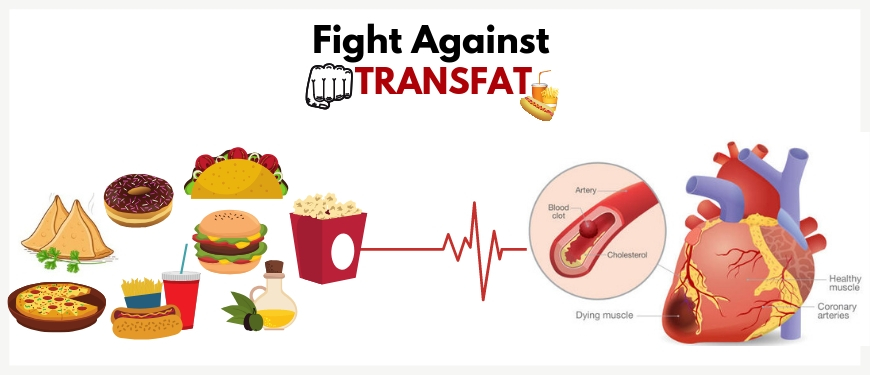Public health groups have asked the government to fast-track approval of two draft regulation to reduce trans-fat consumption.
National Agency for Food Drugs Administration and Control (NAFDAC) initiated both regulations: the ‘Fats and Oils Regulation 2019’ and the ‘Pre- Packaged Foods, Water and Ice-Labelling Regulations 2019.
WHO to certify trans-fat-free countries
Got fatigue? Study further pinpoints brain regions that may control it
Both are yet to get approval months after work was concluded on them, according to the Network for Health Equity and Development (NHED) and Corporate Accountability and Public Participation Africa (CAPPA).
If they come into force, they will help move Nigeria to reach its target of eliminating trans-fat from foods consumed in the country.
To understand trans fat and what it is, imagine you have butter and margarine.
While butter is fat from animal, margarine is an imitation butter made from industrially processed (hydrogenated) vegetable oils.
The processing, which is also called hydrogenation, produces fats and oils with longer shelf lives.
This is what is attractive to many in the food industry and creates the now debunked notion that such fats and oils are a cheaper alternative with better tasting products.
They have been linked to several noncommunicable diseases.
According to the Global Trans-fat Report, of the 17.9 million deaths caused by cardiovascular diseases globally about 10 million are associated with dietary risk.
It also stressed that trans-fat consumption is associated with increased risk of heart attacks and deaths from coronary heart disease
In his foreword to the Report, WHO Director General Tedros Adhanom Ghebreyesus, said: “Non-communicable diseases (NCDs) – including heart disease, stroke, cancer and diabetes – kill 41 million people worldwide every year.”
He further stated that: “Industrially produced trans-fatty acids (TFA), which are still used in some countries as an ingredient in fried food, deep-fried food, baked goods and spreads, are linked with heart disease and death.
“But they can be completely eliminated and replaced with healthier oils and fats without changing the taste or cost of food.”
The 2020 report acknowledges the Nigerian government’s effort towards trans-fat elimination in foods, but the country needs to speed up those efforts to enable the nation meet the WHO 2023 deadlines, says both NHED and CAPPA.
NHED The Country Technical Lead of NHED, Dr. Jerome Mafeni, said:
“Trans-fat consumption has become a major public health concern, even more so at this period of the COVID 19 pandemic,” says NHED country technical lead, Jerome Mafeni.
“Government needs firm and stiff regulations to promote a healthy diet and healthy lifestyle so as to reduce our national cardiovascular diseases burden.”
Similarly, CAPPA Executive Director, Akinbode Oluwafemi stated, “We do recognize the Ministry of Health and NAFDAC’s efforts towards the NAFDAC regulations, we are however worried by the slow pace regarding the approval of the draft regulations.
“We therefore plead that urgent actions are needed to halt unnecessary deaths from Trans-fat consumption.”
The WHO on May 14, 2018, released the REPLACE package advising governments across the world that, “eliminating trans-fat is key to protecting health and saving lives.”
The REPLACE package is a step-by-step guide for the elimination of industrially-produced trans-fatty acids from the global food supply.

 Join Daily Trust WhatsApp Community For Quick Access To News and Happenings Around You.
Join Daily Trust WhatsApp Community For Quick Access To News and Happenings Around You.


